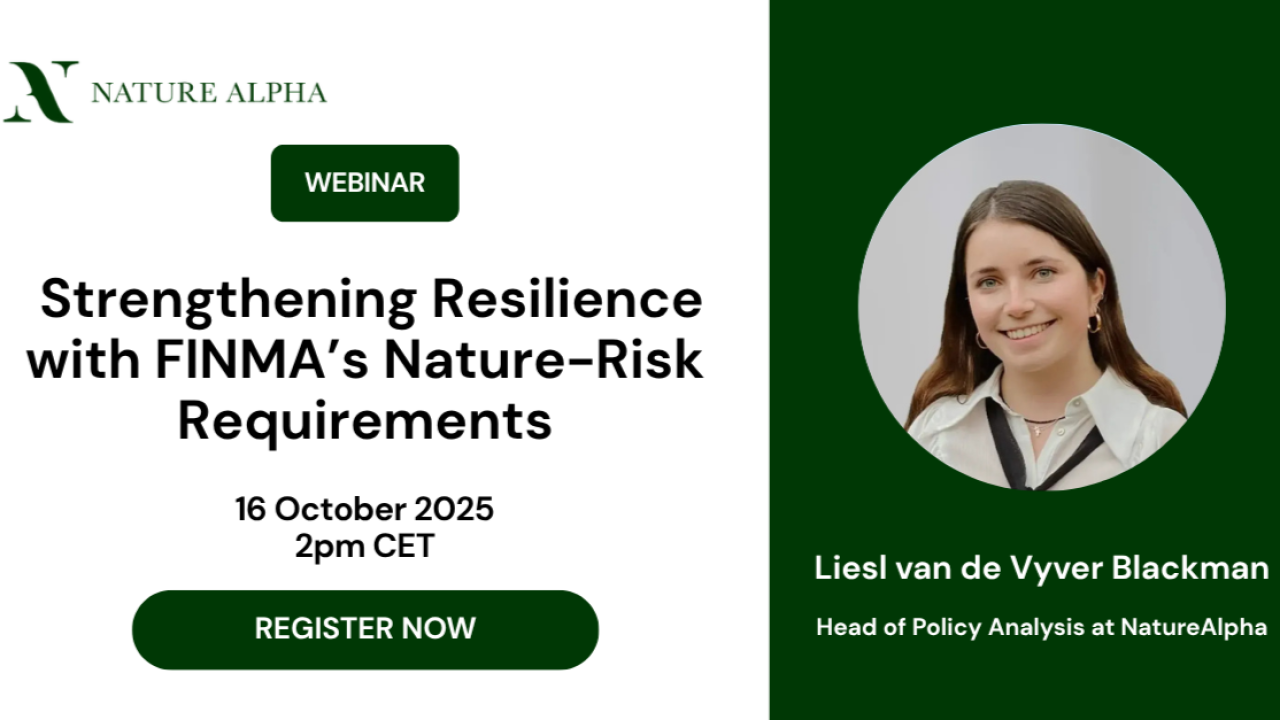NatureAlpha’s Transparent, Actionable Insights: Turning Complexity into Investment Clarity

In a world where nature-related risks are rising and regulatory expectations are intensifying, access to environmental data is no longer enough—clarity and actionability are now essential. That’s why NatureAlpha’s Geoverse 2.0 is redefining how sustainability and investment teams approach nature risk. By delivering clear, intuitive risk scores, NatureAlpha translates complex environmental dependencies into practical, decision-ready insights.
Geoverse 2.0 takes the vast and intricate world of biodiversity, ecosystem services, and environmental stressors and distils them into a progressive 0–100 nature risk score. This enables users to instantly assess a company or asset’s exposure and impact, benchmark it against peers, and identify where action is most urgently needed.
Rather than overwhelming users with fragmented data, the platform presents holistic, visually intuitive outputs that support quick understanding and informed responses—whether that’s rebalancing a portfolio, engaging with a high-risk company, or aligning disclosures with the Taskforce on Nature-related Financial Disclosures (TNFD).
Underpinning each score is a robust foundation of scientific data, including 28 environmental layers and over 150 key metrics spanning 11,000+ entities. NatureAlpha’s AI-driven analysis ensures that these insights are not only accurate, but transparent and traceable, allowing users to see how scores are built and why they matter.
For financial institutions, this transparency builds trust and confidence—essential for internal decision-making, regulatory compliance, and stakeholder communication. For sustainability teams, it provides a clear path to action, identifying specific risks, unmanaged exposures, and areas for improvement.
NatureAlpha’s commitment to actionable insight makes it the world’s leading platform for nature risk intelligence—bridging the gap between complex science and investment strategy.
.png)



.jpg)
.jpg)






